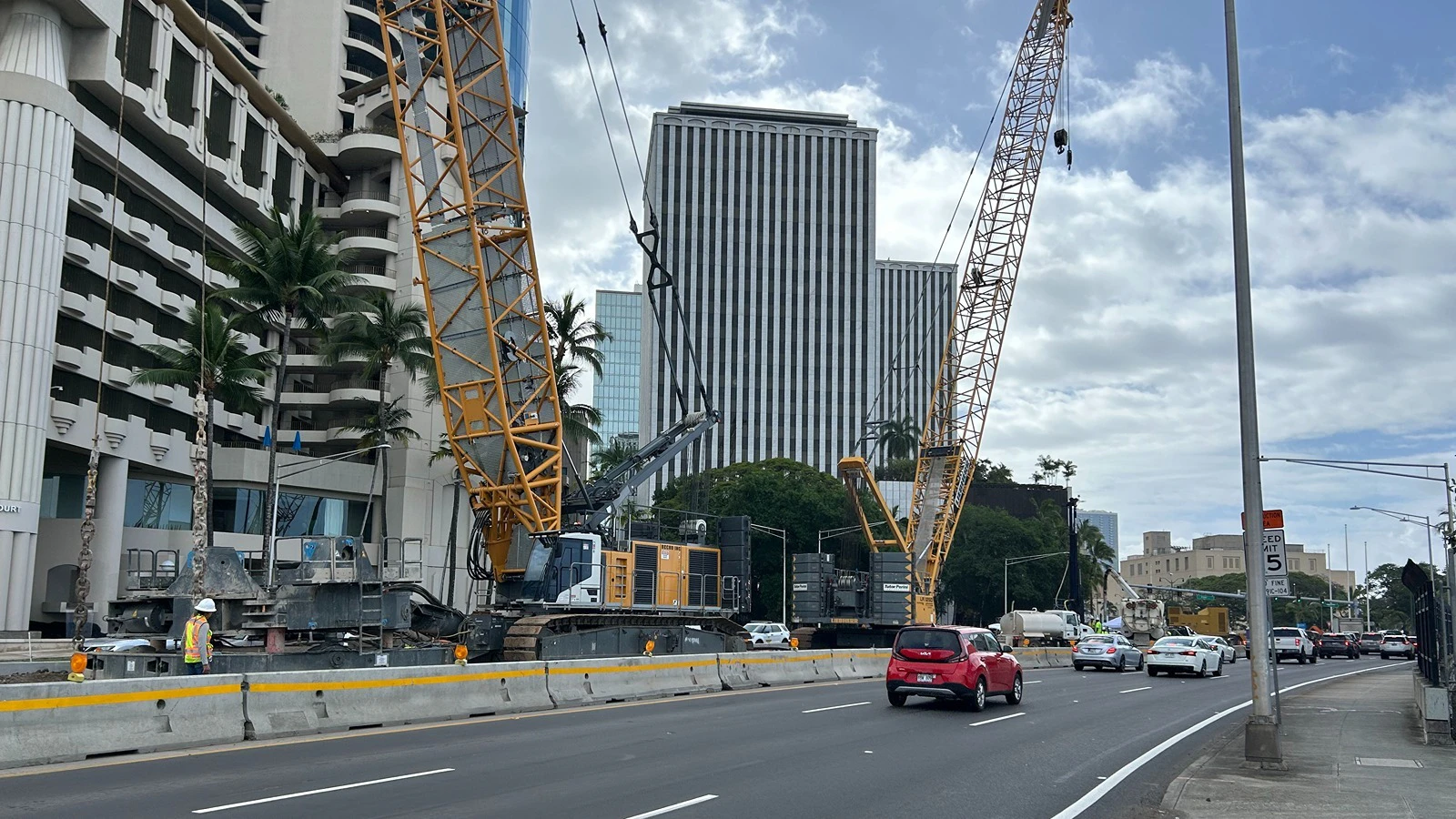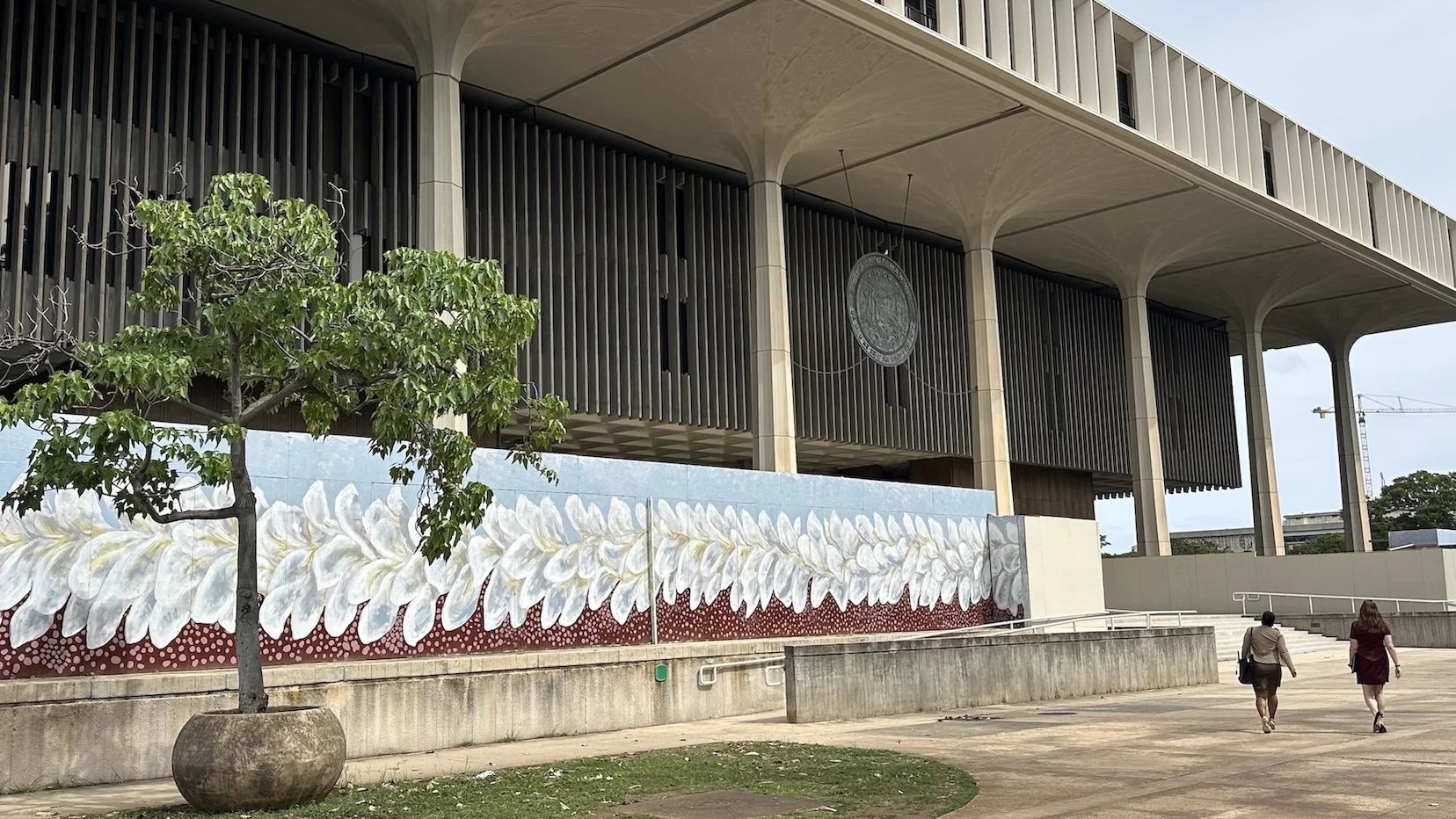Downtown Honolulu business owners questioned a proposed business improvement district for the neighborhood on Tuesday.
Plans for a special business improvement district for Downtown Honolulu have been percolating for more than a year, as it became clear to property owners that the problems facing the area — homelessness and uncleanliness chief among them — could not be solved through the city alone.
The BID, therefore, would assess business properties within the district — about 2,000 parcels between Nu‘uanu Avenue, Beretania Street, Mililani Street and Nimitz Highway — and use those assessments to fund services including cleaning and security.
Chris Fong, a senior investment associate and Tradewind Capital, made a presentation Tuesday to business owners outlining the proposal, anticipating that the BID could hire seven security officers to be on duty at all times on weekdays, and two powerwashers to clean throughout the district each day.
While town halls and council meetings about the BID have drawn support from business owners, Tuesday’s town hall, held at Pickles at Forté at the Fort Street Mall, had a more muted response.
In particular, some attendees questioned whether hiring additional security to move homeless people out of the area will accomplish anything, considering the close proximity of state buildings like ‘Iolani Palace, where homeless people tend to congregate.
“They’ll wait on the grass and just come back when security goes home,” one attendee said.
Others questioned the BID’s proposed preliminary budget, which doesn’t currently include any funds for public restrooms that could reduce the area’s public defecation problem. And still others wondered about the logistics of levying assessments on mixed-use properties, as residential properties would not be included within the district.
Honolulu Police Department Acting Major Henry Roberts said there are “valid concerns” about homeless people being simply driven into neighboring areas, Chinatown in particular, and that HPD will assess those concerns as the BID takes shape.
Fong added that time is not necessarily on the BID’s side: because the assessments used to fund the district are dependent on state real property data, the BID must begin at the start of the fiscal year, in July.
If the BID is not ready to go by July 2026, Fong said “we’d have to wait a whole other year to start.”
Several City and County officials endorsed the BID at Tuesday’s meeting. Managing Director Michael Formby said that Waikīkī’s Business Improvement District has proven that city services improve in an area that has a BID.
“One thing the city is not good with is intangibles,” Formby said. “We’re not good at activating communities, communities are good at activating communities.”
Formby said that BID workers who are intimately familiar with their communities are able to identify problems and communicate them to the city or law enforcement more quickly.
At the same time, Formby said a BID can also bypass the city’s laborious procurement process, which can take between three to six months to complete an acquisition.
“It’s about having an entity to represent the district, and apply for grants, things like that,” Formby said.
Downtown Councilman Tyler Dos Santos-Tam said the BID won’t solve all of Downtown’s problems and is “one part of a whole constellation” of private and city projects.
A bill establishing the BID is currently under discussion at the City Council, with a public hearing scheduled for Sept. 3. Another town hall, this one focused on area residents, will be held 5:30 p.m. Aug. 14 at Pickles at Forté at the Fort Street Mall.
Under that bill, the BID's proposed first-year budget would be $1.9 million, $1.7 million of which would be generated by assessments. Those assessments would be levied at a rate of $0.75 for every $1,000 of assessed value for a given property — Fong said this averages out to roughly $0.02 per square foot per month.





